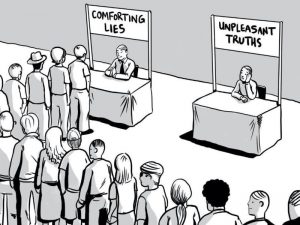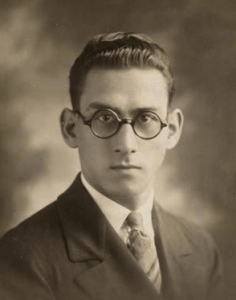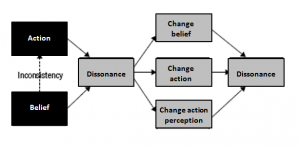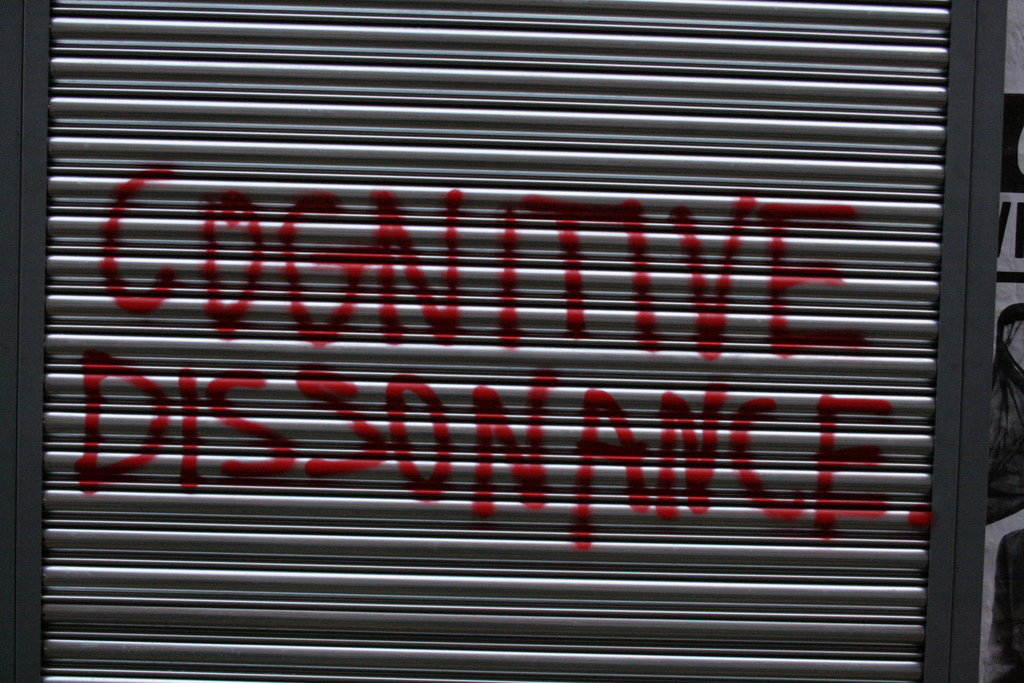 You would think that occultists would be at the cutting edge of thought and be ready to look and adapt to new ideas. In fact, new ideas are hard to come by and when introduced are met with a great deal of resistance. Some of this is down to the idea of preserving traditions, but mostly it is due to what psychologists call cognitive dissonance.
You would think that occultists would be at the cutting edge of thought and be ready to look and adapt to new ideas. In fact, new ideas are hard to come by and when introduced are met with a great deal of resistance. Some of this is down to the idea of preserving traditions, but mostly it is due to what psychologists call cognitive dissonance.
For those who came in late, cognitive dissonance is a simple theory which suggests that we have an inner drive to hold all our attitudes and behaviour in harmony and avoid disharmony (or dissonance). So, when something appears that is new, which runs counter to what we thought we knew, we will ignore it just to keep the balance right. My old teacher once said that people tend to believe the first thing they are told on a subject and find it difficult to let go of, and there might be some truth behind that (but it was the first time anyone suggested the idea to me so he might have been wrong and I refuse to give it up).
I first encountered cognitive dissonance in the occult community nearly 15 years ago when I was doing some research on the banishing ritual of the pentagram. In Western Magic this little ritual is used before any working. The ritual was developed by the Golden Dawn and was provided to every neophyte. I looked at the paperwork given to neophytes throughout the long history of the Golden Dawn it was clear discovered that it was the invoking pentagram which was the main tool to be used to provide protection and the banishing was just a footnote (for when you were in unsafe space or under attack).

I printed my findings and expected there to be either a change in the use of the banishing by at least GD types or at least a general discussion about it. While the idea was accepted amongst some Golden Dawn people, nothing really happened. People still ask questions about banishing on the various facebook groups. One person recently called into question my ability to teach because other (non-Golden Dawn) teachers, such as EA Groening insisted on the use of the banishing before any ritual. In short, I must be wrong because so many others said so. To be fair until I did some research on it, I would have said the same.
I tried to track back when the banishing superseded the invoking and found that it arose with the development of the psychological model within occultism. People like Israel Regardie favoured the banishing because it meant getting rid of complexes. The real Golden Dawn had long since passed into obscurity and so a tiny innovation in emphasis went unnoticed and there was no-one to complain. Regardie was hugely influential over most of the names of the 20th century magical scene. To many he was a font of knowledge of all things Golden Dawn. In fact, his Golden Dawn experience was limited and his ideas like the banishing, the watchtowers and his semi-tantric middle pillar exercise were all his own devising.
Another example of cognitive dissonance is the amount of emotion placed in defending the Kybalion as “hermetic” or having any real use in magic at all. As I have written elsewhere, this New Age con trick is responsible for a lot of terrible thinking within the occult movement. The fact it suckered good minds like Paul Case, David Goddard, and even me for many years is no excuse.
Each of the seven principles that the book is based on can be pulled apart by basic philosophic or scientific reasoning. The fact it has survived so long is thanks to the lack of philosophic or scientific reasoning in the esoteric community and the amount of cognitive dissonance attached to it. Even those who admit it is flaky palm off their dissonance by claiming “there is some truth in it” (truth which they can never provide or if they do it can be soon pulled to bits).
When presented with the fallacy behind the Kybalion you can see people acting in full cognitive dissonance mode. They say:
1. I don’t understand it or have not studied it properly (I do and have).
2. They say it contains principles which have been part of Hermetics and Cabbalah since the beginning (they haven’t. You would think that a book that sums up hermetic thought might have a basis in existing hermetic thought but nothing).
3. They insist that the universe works like that anyway (it can’t. The Kybalion depends on an early 20th century view of science which has been largely superseded).
4. They claim that magic depends on it (which is odd because no work of magic before the Kybalion uses any of the principles.
5. They say I am stupid and don’t know what I am talking about, and smell of Nintendo (by this point the conversation is normally over).
 There are loads of other situations in magic where cognitive dissonance places the brakes on esoteric development. Issues fought over in esoteric groups often break down to something that my teacher told me that I thought was true but turned out not to be. There are many people who swear blind that astral initiation of a neophyte is possible because their teacher made a buck or two out of them without having to show up for the rite.
There are loads of other situations in magic where cognitive dissonance places the brakes on esoteric development. Issues fought over in esoteric groups often break down to something that my teacher told me that I thought was true but turned out not to be. There are many people who swear blind that astral initiation of a neophyte is possible because their teacher made a buck or two out of them without having to show up for the rite.
People like Jake Stratton-Kent have found it uphill work convincing people that you don’t really need a Tree of Life or a celestial view of the universe to get things done.
Aaron Leitch has angered those who follow African Traditions for pointing out that some of those traditions exist within the Solomonic tradition (he also may once have borrowed few of their terms, but it is not my tradition, so I can’t comment on it).
Cognitive dissonance prevents the evolution of magic. In older systems of magic, you can see an evolution of tradition thanks mostly because isolated magicians trained their students based on their own research. Printing affected that somewhat and enabled more unified ideas, but in many ways those systems have become unchangeable dogmas.
But ironically occult tradition is not about theology or dogmas but research. Because a grimoire has written down a spell, it does not mean it is going to work in the 21st century.It might have to be adapted. That adaptation needs to be tested to make sure it works.
That process is getting suppressed now as people try and drag systems down to something they are more comfortable and familiar. The internet makes this cognitive dissonance even worse because it echoes.

Some rare common sense Nick, I think we should all be more concerned with what works for me,now, rather than where did it come from?
I\’m very familiar at meeting with cognitive dissonance when I present my research to the occult community so naturally I completely agree. In the field of science, people are more or less educated to cope with the shocks and surprises of the new. They are taught to question, test and embrace new information and see themselves as a progressive vanguard. The occult community could do with taking some tips.
Thank you for writing this. It is much needed.
Thanks Nick, for this post,
I have had similar experiences. In my case, I was told that I would introduce chaotic energies into the group that belonged to the Dion Fortune tradition.
Often, innovative or new ideas are rejected by a teacher, as this does not conform to tradition. For this, text citations of authorities such as e.g. Dion Fortune, who should prove this – but about personal experiences are not spoken. As a result, innovative resources that a student might bring in are lost and eventually make the tradition sterile. Interestingly, Dion Fortune is now being discussed as an authority, even though she herself was similarly rejected by Mrs. Mathers with her new ideas. Here, the cat bites its tail, or is it the “hermetic” dragon?